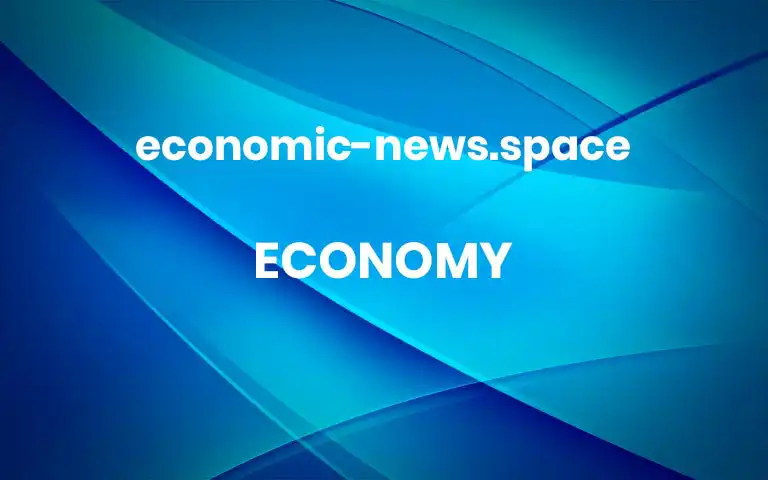US Cracks Down on Chinese Companies for Security Concerns

The Biden administration placed severe restrictions on trade with dozens of Chinese entities, its latest step in a campaign to curtail access to technology with military applications.WASHINGTON — The Biden administration on Thursday stepped up its efforts to impede China’s development of advanced semiconductors, restricting another 36 companies and organizations from getting access to American technology.The action, announced by the Commerce Department, is the latest step in the administration’s campaign to clamp down on China’s access to technologies that could be used for military purposes and underscored how limiting the flow of technology to global rivals has become a prominent element of United States foreign policy.Administration officials say that China has increasingly blurred the lines between its military and civilian industries, prompting the United States to place restrictions on doing business with Chinese companies that may feed into Beijing’s military ambitions at a time of heightened geopolitical tensions, especially over Taiwan.In October, the administration announced sweeping limits on semiconductor exports to China, both from companies within the United States and in other countries that use American technology to make those products. It has also placed strict limits on technology exports to Russia in response to Moscow’s invasion of Ukraine.“Today we are building on the actions we took in October to protect U.S. national security by severely restricting the PRC’s ability to leverage artificial intelligence, advanced computing, and other powerful, commercially available technologies for military modernization and human rights abuses,” Alan Estevez, the under secretary of commerce for industry and security, said in a statement, referring to the People’s Republic of China.Among the most notable companies added to the list is Yangtze Memory Technologies Corporation, a company that was said to be in talks with Apple to potentially supply components for the iPhone 14.Congress has been preparing legislation that would prevent the U.S. government from purchasing or using semiconductors made by Y.M.T.C. and two other Chinese chip makers, Semiconductor Manufacturing International Corporation and ChangXin Memory Technologies, because of their reported links to Chinese state security and intelligence organizations.The Biden PresidencyHere’s where the president stands after the midterm elections.A New Primary Calendar: President Biden’s push to reorder the early presidential nominating states is likely to reward candidates who connect with the party’s most loyal voters.A Defining Issue: The shape of Russia’s war in Ukraine, and its effects on global markets, in the months and years to come could determine Mr. Biden’s political fate.Beating the Odds: Mr. Biden had the best midterms of any president in 20 years, but he still faces the sobering reality of a Republican-controlled House for the next two years.2024 Questions: Mr. Biden feels buoyant after the better-than-expected midterms, but as he turns 80, he confronts a decision on whether to run again that has some Democrats uncomfortable.The U.S. government added the companies to a so-called entity list that will severely restrict their access to certain products, software and technologies. The targeted companies are producers and sellers of technologies that could pose a significant security risk to the United States, like advanced chips that are used to power artificial intelligence and hypersonic weapons, and components for Iranian drones and ballistic missiles, the Commerce Department said.In an emailed statement, Liu Pengyu, the spokesman for the Chinese embassy in Washington, said that the United States “has been stretching the concept of national security, abusing export control measures, engaging in discriminatory and unfair treatment against enterprises of other countries, and politicizing and weaponizing economic and sci-tech issues. This is blatant economic coercion and bullying in the field of technology.”“China will resolutely safeguard the lawful rights and interests of Chinese companies and institutions,” he added.On Monday, China filed a formal challenge to the Biden administration’s chip controls at the World Trade Organization, criticizing the restrictions as a form of “trade protectionism.”The administration said that some companies, including Y.M.T.C. and its Japanese subsidiary, were added to the list because they posed a significant risk of transferring sensitive items to other companies sanctioned by the U.S. government, including Huawei Technologies and Hikvision.The Commerce Department said that another entity, Tianjin Tiandi Weiye Technologies, was added for its role in aiding China’s campaign of repression and surveillance of Uyghurs and other Muslim minority groups in the Xinjiang region of China, as well as providing U.S. products to Iran’s Islamic Revolutionary Guards Corps. U.S.-based firms will now be forbidden from shipping products to these companies without first obtaining a special license.Twenty-three of the entities — in particular, those supplying advanced chips used for artificial intelligence with close ties to the Chinese military and defense industry, and two Chinese companies that were found to be supporting the Russian military — were hit with even tougher restrictions.The companies will be subject to what is known as the foreign direct product rule, which will cut them off from buying products made anywhere in the world with the use of American technology or software, which would encompass most global technology companies.The administration also said it would lift restrictions on some companies that had successfully undergone U.S. government checks that ensured their products weren’t being used for purposes that the government deemed harmful to national security.As part of the restrictions unveiled in October, the Biden administration placed dozens of Chinese firms on a watch list that required them to work with the U.S. government to verify that their products were not being used for activities that would pose a security risk to the United States.A total of 25 entities completed those checks, in cooperation with the Chinese government, and thus have been removed from the list. Nine Russian parties that were unable to clear those checks were added to the entity list, the department said.A spokesperson for the Commerce Department said that the actions demonstrated that the United States would defend its national security but also stood ready to work in cooperation with companies and host governments to ensure compliance with U.S. export controls.In a separate announcement Thursday morning, a government board that oversees the audits of companies listed on stock exchanges to protect the interests of investors said that it had gained complete access for the first time in its history to inspect accounting firms headquartered in mainland China and Hong Kong.The agency, called the Public Company Accounting Oversight Board, said this was just an initial step in ensuring that Chinese companies are safe for U.S. investors. But the development marked a step toward a potential resolution of a yearslong standoff between the United States and China over financial checks into public companies. It also appeared to decrease the likelihood that major Chinese companies will be automatically delisted from U.S. exchanges in the years to come.Congress passed a law in 2020 that would have required Chinese companies to delist from U.S. stock exchanges if U.S. regulators were not able to inspect their audit reports for three consecutive years.Erica Y. Williams, the chair of the board, said the announcement should not be misconstrued as a “clean bill of health” for firms in China. Her staff had identified numerous potential deficiencies with the firms they inspected, she said, though that was not an unexpected outcome in a jurisdiction being examined for the first time.“I want to be clear: this is the beginning of our work to inspect and investigate firms in China, not the end,” Ms. Williams said. More



